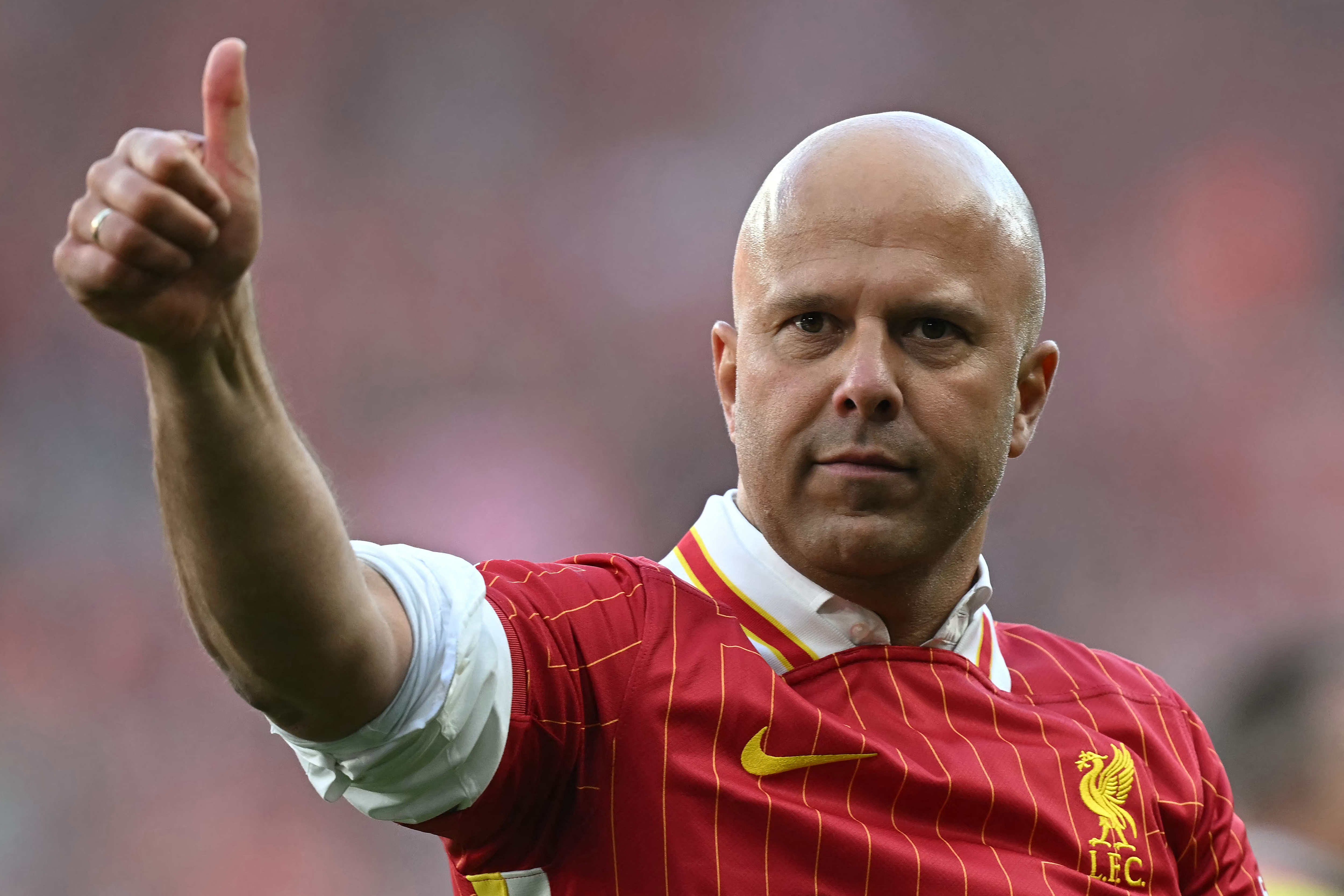Tears, tantrums and phone bills: 14 high-profile superstars who suffered injury agony before a World Cup
Poor Manuel Lanzini's World Cup is over before a ball has been kicked, and doubts remain over the true fitness of Egypt's Mo Salah. The following men know just how they feel – and some even missed out on ultimate glory
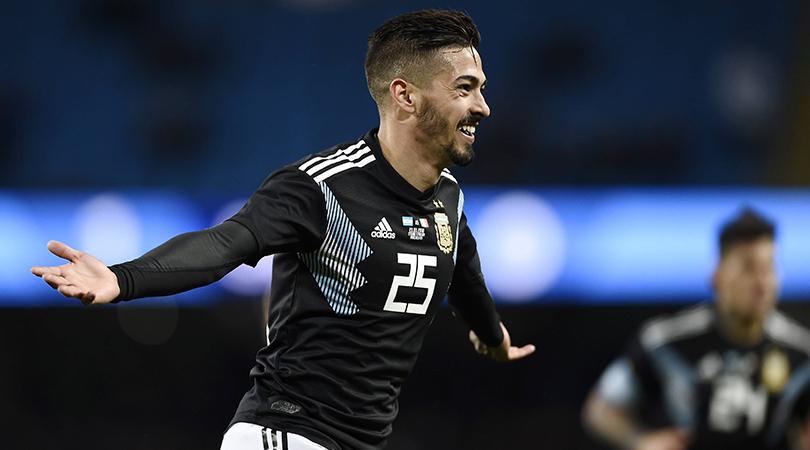
Alfredo Di Stefano (Spain, 1962)
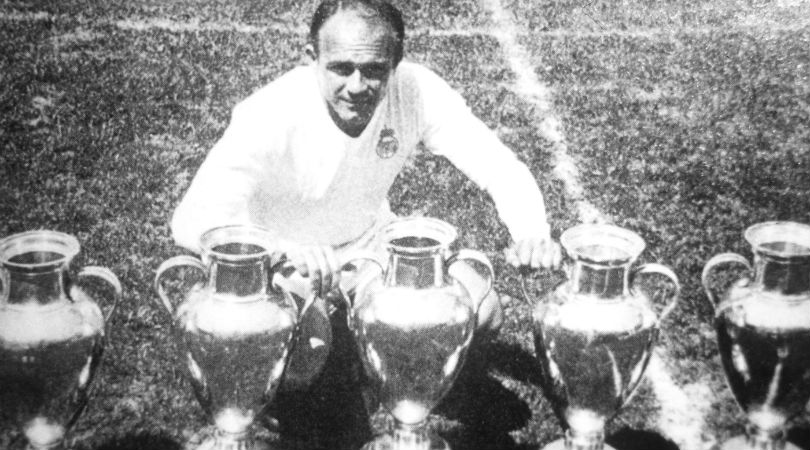
Di Stefano is arguably the greatest player never to feature at a World Cup – despite representing no fewer than three national teams during his career. Born in Argentina, he turned out for the nation of his birth six times until a move to the much-vaunted Millonarios led to him pulling on a Colombia shirt between 1951 and 1952. It was in 1962, after almost a decade with Real Madrid, that Di Stefano came closest to playing in international football’s showpiece event, having helped his adopted nation of Spain to qualify for the tournament in Chile.
He would have joined Ferenc Puskas, Jose Altafini and Jose Santamaria in representing adopted nations at the World Cup - but for a muscular injury picked up during preparations for the tournament.
Spain had a magnificent team, boasting the likes of Inter’s Luis Suarez, legendary Barcelona captain Joan Segarra and, of course, Di Stefano’s club-mates Puskas and Santamaria. It didn’t stop them coming rock bottom of the group, though, as Brazil won their second World Cup.
Laszlo Kubala (Spain, 1962)
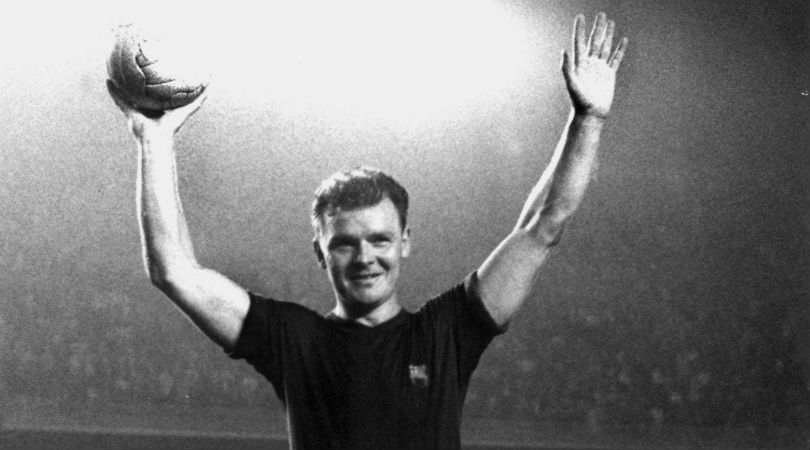
Kubala’s story is a compelling one. He escaped from post-war Hungary into American-occupied Austria dressed as a Russian soldier on the back of a truck, and cheated death when he pulled out of a commitment to play for Torino in a testimonial against Benfica when his son, Branko, fell ill. The plane carrying the team crashed into the Superga Hills on its way back from Lisbon, killing all 31 people on board and bringing a tragic end to Il Grande Torino.
Kubala played for both Hungary and Czechoslovakia before his escape to the West, where he later represented Spain on 19 occasions and scored 11 goals. Despite six caps for Czechoslovakia, three with Hungary and an eight-year association with Spain, Kubala never played in the finals of a major international tournament. He was named in the squad for the 1962 World Cup alongside Di Stefano and Puskas but missed out through injury.
Get FourFourTwo Newsletter
The best features, fun and footballing quizzes, straight to your inbox every week.
Roberto Bettega (Italy, 1982)
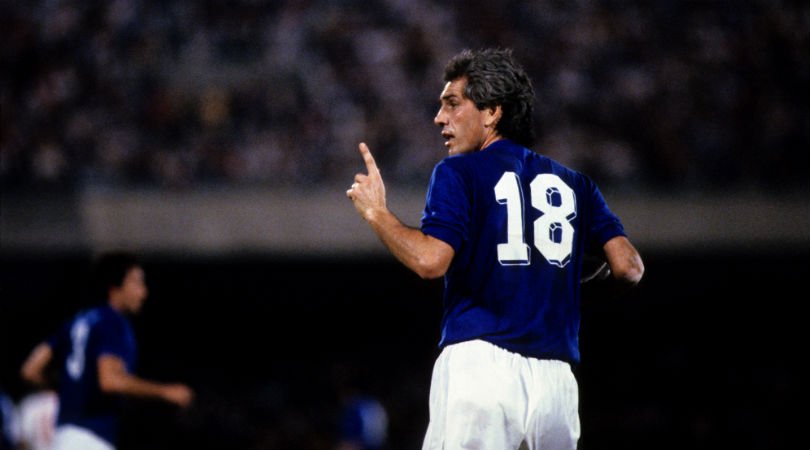
Bettega played with hometown club Juventus for 13 seasons, making more than 500 appearances in all competitions and helping the Old Lady to seven Serie A titles and a UEFA Cup triumph. He went to the 1978 World Cup and was named in the Team of the Tournament, scoring group stage goals against Hungary and hosts Argentina as Italy topped the group and ultimately came fourth.
Four years later, Bettega should have been at his absolute peak. He was 31 years old with two major tournaments under his belt, having also played at Euro '80, and fresh from his seventh league title. Unfortunately for Bettega, however, an almighty collision with Anderlecht goalkeeper Jacques Munaron in a November 1981 European Cup match caused a serious knee injury and ruled him out for the rest of the season.
Before that fateful evening in Turin, Bettega had been on course for his best season ever: he’d scored five league goals in seven appearances, eight in all competitions, and was on to break his best ever goalscoring season two years previously when his 16 in the league won him the Capocannoniere award.
Italy went on to win the 1982 World Cup in style, with the previously-disgraced Paolo Rossi scoring the goals that won the Azzurri their third World Cup – fresh from serving a two-year ban for his part in the Totonero betting scandal.
Kenny Dalglish (Scotland, 1986)
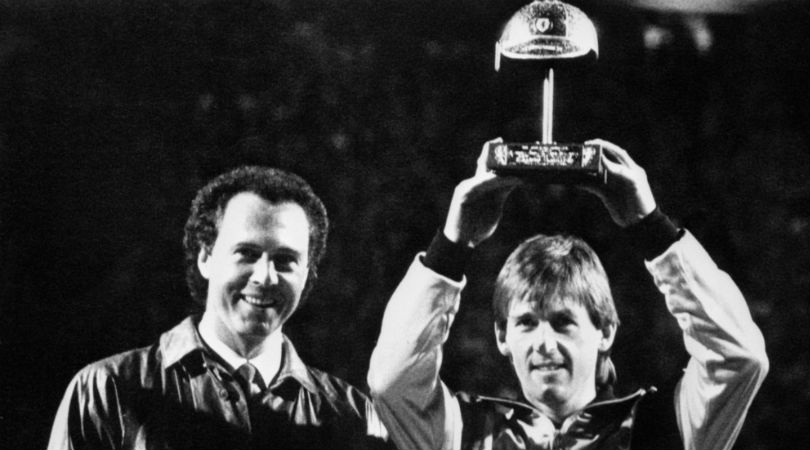
Dalglish had played in the first leg of the intercontinental play-off between Scotland and Australia ahead of the 1986 World Cup, shortly after guiding Liverpool to the First Division-FA Cup Double in his first season as player-manager, having scored the volley against Chelsea which sealed the league title.
Scotland had qualified for that play-off against the Socceroos on a bittersweet night in Cardiff. Needing a point against Wales to keep their dreams of Mexico alive, the Scots were a goal down when they won a penalty with nine minutes remaining. Davie Cooper scored it, but at the end of the match, legendary coach Jock Stein had a heart attack and died in the medical room at Ninian Park.
Alex Ferguson led Scotland into the play-off, where they beat Australia, and remained in charge for the tournament in Mexico. But Scotland had to do it without their best player Dalglish, and with the original Group of Death awaiting their arrival too. King Kenny was named in the original squad of 22 but pulled out with a knee knack, although rumours at the time suggested he had done so in protest at the non-selection of Alan Hansen, his Liverpool team-mate.
Daniel Passarella (Argentina, 1986)
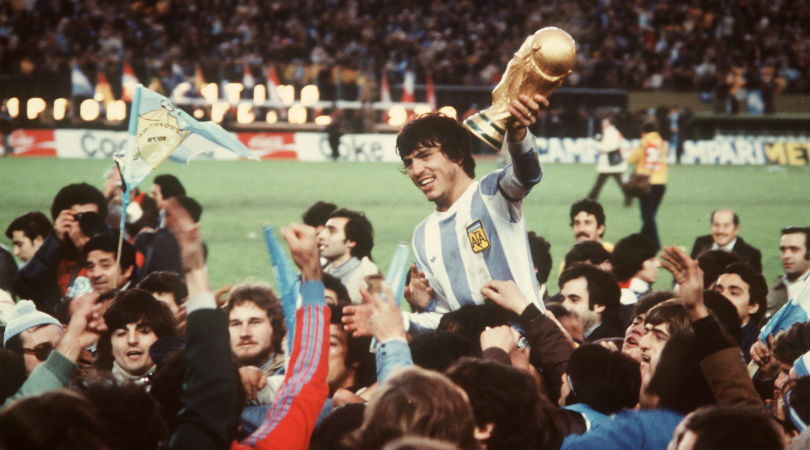
Passarella captained Argentina to World Cup success on home soil in 1978, and was named in the squad for Mexico '86 eight years later amid a fractious relationship with Diego Maradona. Argentina coach Carlos Bilardo had brought Maradona back into the fold – and named him captain – after two years in the wilderness following his red card against Brazil at Spain '82.
Passarella accused Maradona of taking drugs before the tournament; El Diego hit back with claims that Passarella had racked up a huge phone bill to his mistress in Monaco but wouldn't admit it, despite his number showing up on the bill. “What Passarella didn’t know was at that time telephone bills in Mexico were itemised,” Maradona wrote in his autobiography. “And it was his number, the bastard! He was earning like $2m a year and he played dumb about the phone bill for 2,000 peso. He was making us all pitch in to pay for the calls, and he thought it would never come to light.”
A difficult decision was avoided, though, when Passarella – a bona fide legend of the Argentine game and held in much higher regard at home than Maradona – contracted a bout of enterocolitis that left him bed-ridden and unable to train. His replacement in the squad, Jose Luis Brown, scored the opening goal in the final as Argentina won their second World Cup in three tournaments.
Marco van Basten (Holland, 1994)
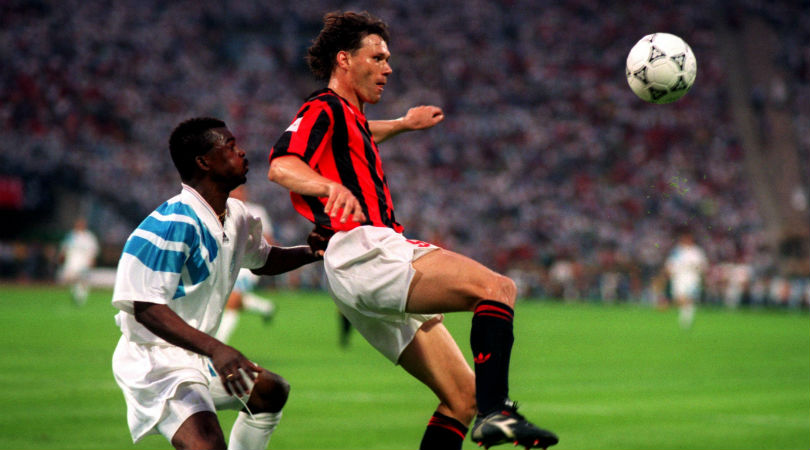
There was a time when Van Basten was the greatest striker on the planet; a supremely elegant striker capable of the spectacular. In reality, the Dutchman played his last game for Milan a whole year before USA '94 – the 1993 Champions League Final defeat to Marseille. He had rushed back from a previous injury to be involved, but a terrible challenge from Basile Boli didn’t just end Van Basten’s involvement in the match, it effectively ended his career.
Van Basten did play at a World Cup – Italia ’90 – but never scored a goal and his Holland side didn’t win a game, drawing each of their group matches against the Republic of Ireland, England and Egypt before being knocked out in the first knockout stage by eventual champions Germany.
The striker struggled even in qualifying for international football’s flagship tournament but excelled at continental level, with his goals firing the Netherlands to their only trophy to date: Euro '88.
Romario (Brazil, 1998)
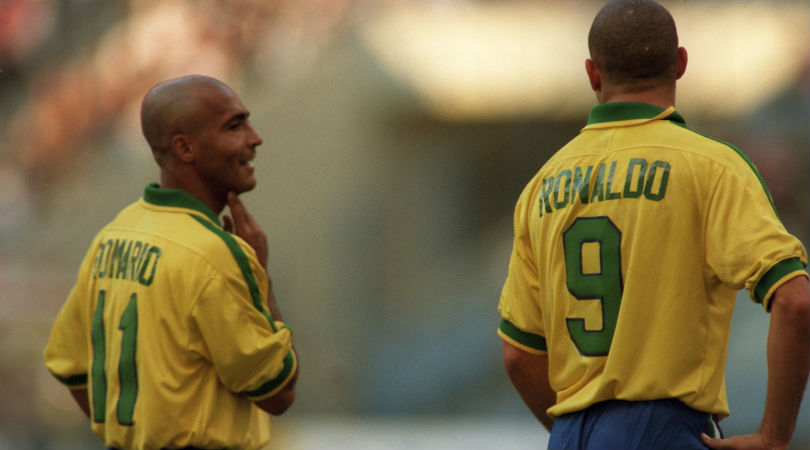
Romario was USA ’94's best player, his goals and excellent form winning him the Golden Ball and propelling Brazil to World Cup victory. Four years later, a muscular injury prevented him from helping the Selecao defend their title, with the news breaking on the day that final squads were submitted to FIFA.
The striker held a tearful press conference in Rio that day, telling the world that his calf injury wouldn’t heal in time. Not even the unconventional intervention of his mother, who sought the help of a departed Spanish physician through a medium, could hurry along Romario’s recovery.
He played on with Brazil until 2005 and finished with a record of 55 goals in 70 caps; enough for third in their all-time top goalscorers list. Soon he'll be nudged down to fourth by Neymar.
Santiago Canizares (Spain, 2002)
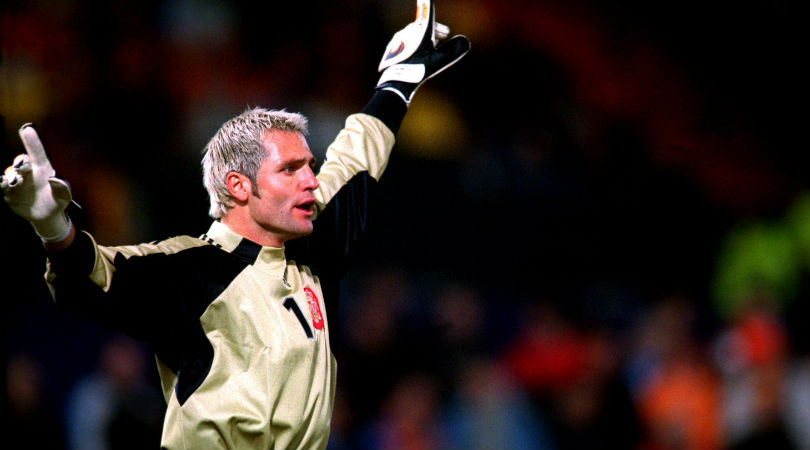
Going into the 2002 World Cup, Valencia keeper Canizares had won 35 caps and was La Roja’s first choice between the posts; a young Iker Casillas his understudy. But a fortnight before the tournament started, and just three days before the group were to leave for Korea, Canizares dropped a bottle of aftershave in his hotel room. It smashed, severing a tendon in his right foot that required emergency surgery, and cruelly ended his hopes of making the trip.
Canizares was surprisingly philosophical about the whole situation. “I don't consider myself to be unlucky by any means,” he told reporters. “From the start of my career I've had several strokes of good luck but, just like everyone else, I've also had difficult times which I've had to cope with.”
It meant Canizares made just two World Cup appearances in his career: the first at USA ’94 while first-choice Andoni Zubizarreta served a suspension, and the second 12 years later in 2006 when he played the last group stage match against Saudi Arabia. Spain won 1-0, and it was the last of Canizares’s 46 caps.
Emerson (Brazil, 2002)
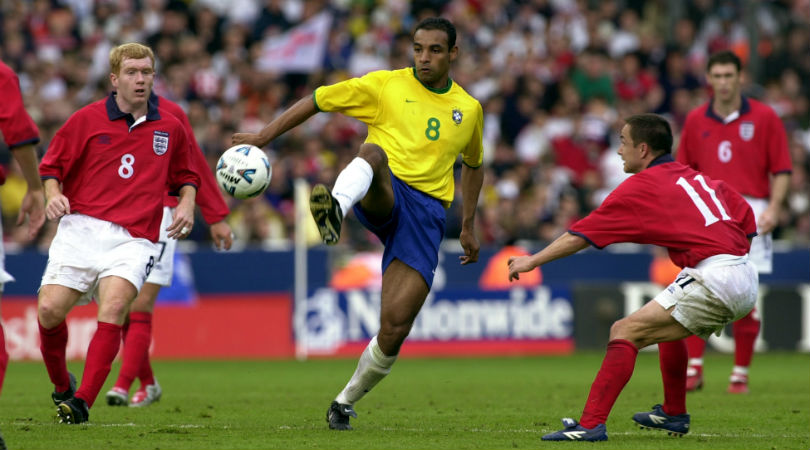
The man who replaced Romario at France '98 suffered a dislocated shoulder in training ahead of the 2002 competition in Japan and Korea. Having been trusted with the captain’s armband by coach Luiz Felipe Scolari, Emerson was playing in goal in a light-hearted practice match when he fell awkwardly on his shoulder. The bad news was relayed to him in the dressing room shortly after.
His replacement, Gilberto Silva, played every minute of every match as Brazil dazzled their way to the final, beating Germany 2-0 courtesy of two second-half goals from Ronaldo.
Michael Ballack (Germany, 2010)
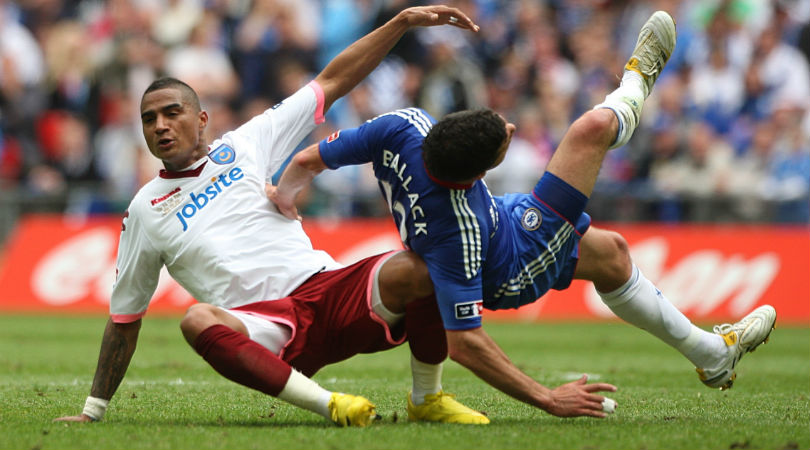
Chelsea midfielder Ballack missed out on the 2010 World Cup in South Africa following a challenge by Kevin-Prince Boateng in the FA Cup final. He had been massively influential throughout the qualifying campaign, and this tournament was supposed to be his international swansong – plus the occasion to mark his 100th cap, no less. Ultimately neither happened; Ballack left Chelsea that summer and returned to the Bundesliga with Bayer Leverkusen, but a series of injuries meant he never recovered his best form.
Ironically, Ghana's Boateng played against Germany at the World Cup while Ballack watched from the stands, having travelled to offer his moral support to the team.
Ballack never played for the national team again, turning down the opportunity to play two final friendlies that would have allowed him to reach 100 international appearances, and eventually retired in October 2012, stranded on 98 caps.
David Beckham (England, 2010)
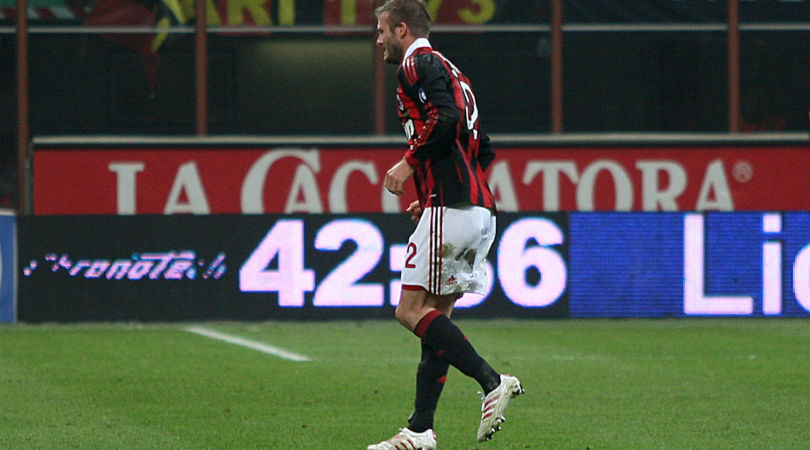
Beckham’s hopes of going to South Africa were ended in March 2010 when he ruptured his Achilles tendon in a Serie A victory for Milan over Chievo, dashing his hopes of a fourth World Cup with England.
In his international career, the midfielder transformed himself from national pariah (following his red card at France '98 against Argentina) to becoming England’s most-capped outfield player, surpassing World Cup-winning captain Bobby Moore.
Redemption for 1998 ultimately came with the last kick in qualifying for World Cup 2002. With England trailing 2-1 to Greece and needing at least a draw to qualify outright for Japan and Korea, Beckham scored the brilliant free-kick which sent the Three Lions through. In total, he made 13 World Cup appearances.
The last qualifier for the 2010 World Cup was Beckham’s 115th and final England cap, with Fabio Capello rebuilding after a poor showing in South Africa.
Marco Reus (Germany, 2014)
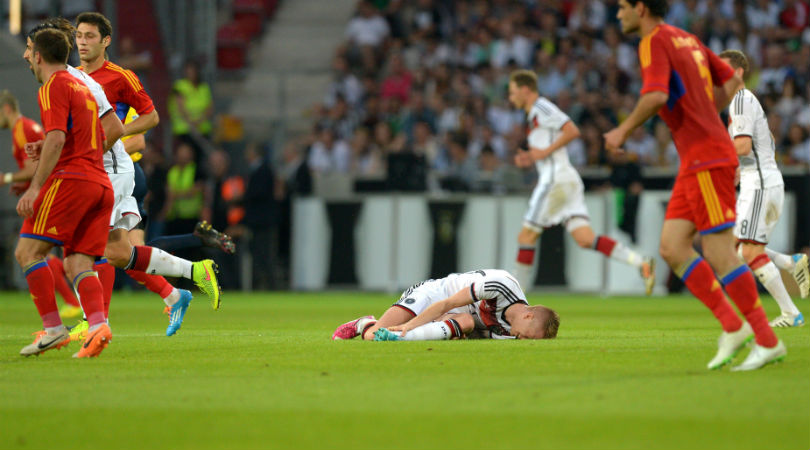
Dortmund wideman Reus has been incredibly unlucky with injuries throughout his career, and even the neutral will be pleased to see him make Joachim Low’s 23-man squad for Russia 2018 after his latest comeback.
Four years ago Reus wasn’t so lucky, missing out as Germany went on to win the tournament in Brazil, and watching on from home as his nation swept the hosts aside in one of the most astonishing World Cup matches of all-time.
Reus had been sensational for Borussia Dortmund in 2013/14, scoring 23 goals and adding as many assists in all competitions – including grabbing both goals in BVB's Champions League semi-final second-leg win over Real Madrid. He also excelled under Low for the national side, scoring five and creating another three in just six qualifiers.
Sadly for Reus, though, a partial tear of ankle ligaments suffered in a World Cup warm-up match against Armenia ruled him out of the finals.
Franck Ribery (France, 2014)
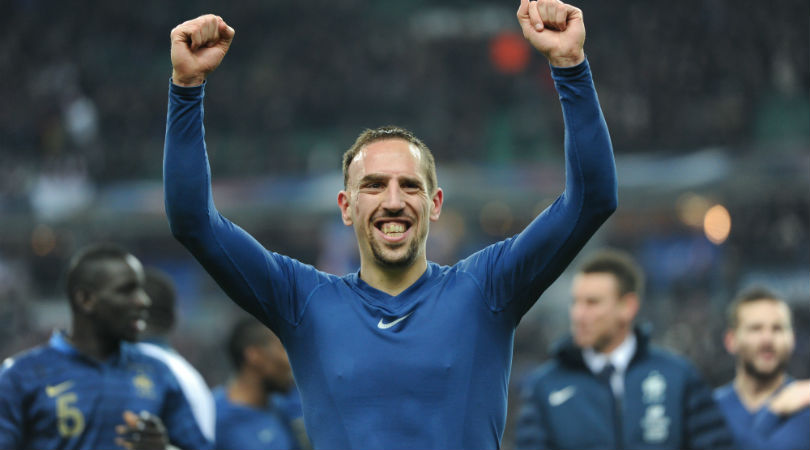
Bayern Munich winger Ribery was instrumental in qualification for the 2014 World Cup, scoring five goals as the 1998 winners came second in their group behind reigning champions Spain. Ukraine were dispatched in a second-leg play-offs comeback, and France duly set off for Brazil.
Unfortunately for them, however, it was without their talismanic winger: Ribery aggravated a back injury just days before the tournament and was replaced by Remy Cabella.
It was a blow for both player and team – the forward had contributed six goals and 12 assists in his previous 12 matches, and finally begun to display the same form for France that had led to him becoming one of the most dangerous attackers at club level.
France were knocked out in the quarter-finals in Brazil by eventual champions Germany, losing 1-0 in a tight game at the Maracana.
Dani Alves (Brazil, 2018)
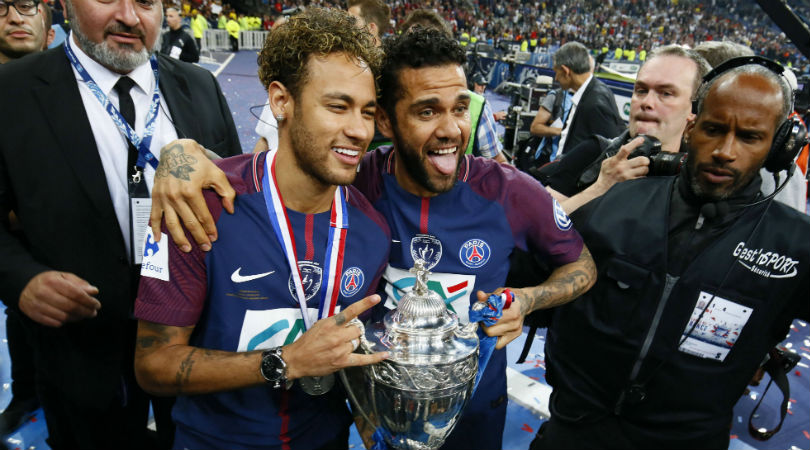
PSG full-back Alves has been capped 104 times by Brazil – only legendary World Cup winners Cafu and Roberto Carlos have earned more in the history of the national team. Despite his advancing years, he would have been a starter for Brazil at this World Cup after enjoying a trophy-laden first season in the French capital, helping PSG to the Ligue 1 title and both domestic cup competitions.
It was in the Coupe de France final against third division side Les Herbiers that Alves injured his ACL. Initial reports suggested that he would be able to recover in time for international football’s showpiece event, but it quickly became clear that his hopes of righting the wrongs of 2014 (when he watched on from the bench) were gone.
In a surprisingly upbeat piece written for the Players' Tribune following his injury, Alves spoke about having already lived his dreams, and refused to believe his time with the national team was over. “Dani Alves is not going to the World Cup, but he is still one happy motherf***er,” he wrote. “When the (2022) World Cup comes around, I will still be competing for a place on the team. My body will be 39, but my spirit will have only turned 17.”
World Cup Wonderland: stories, interviews and more

